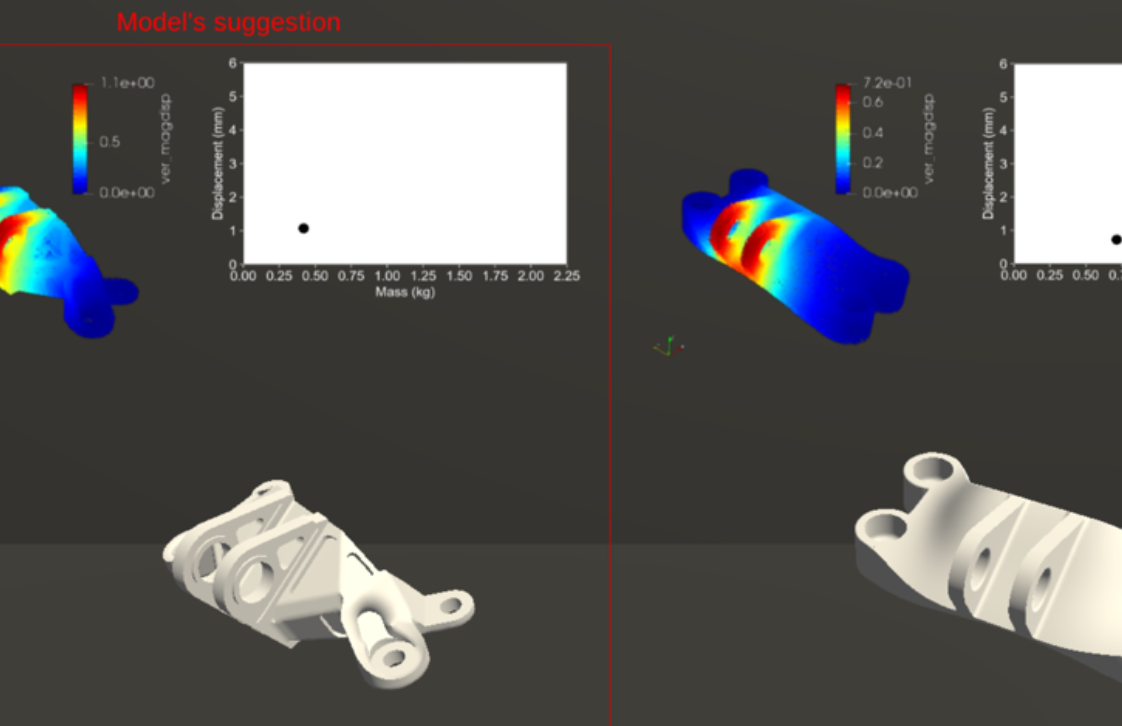Abstract
Engineering design relies on the human ability to make complex decisions, but design activities are increasingly supported by computation. Although computation can help humans make decisions, over- or under-reliance on imperfect models can prevent successful outcomes. To investigate the effects of assistance from a computational agent on decision making, a behavioral experiment was conducted (N = 33). Participants chose between pairs of aircraft brackets while optimizing the design across competing objectives (mass and displacement). Participants received suggestions from a simulated model which suggested correct (i.e., better) and incorrect (i.e., worse) designs based on the global design space. In an uncertain case, both options were approximately equivalent but differed along the objectives. The results indicate that designers do not follow suggestions when the relative design performances are notably different, often underutilizing them to their detriment. However, they follow the suggestions more than expected when the better design choice is less clear.
